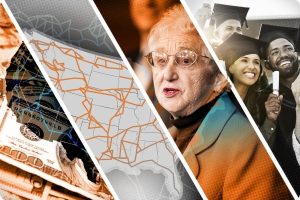According to a recent report from the Center for Responsible Lending, graduates of Historically Black Colleges and Universities (HBCUs) are facing a financial disadvantage compared to their peers from other institutions. The report found that HBCU graduates owe more in student loan debt and earn less in the workforce, highlighting the economic challenges that many African American college graduates are facing.
The report, titled “The State of For-Profit and HBCU Alumni,” analyzed data from the National Postsecondary Student Aid Study and the U.S. Department of Education to compare the financial outcomes of graduates from HBCUs and for-profit institutions with those from traditional public and private colleges. The findings revealed that HBCU graduates have an average student loan debt of $33,838, which is $9,000 more than the average debt of graduates from other institutions.
In addition to higher levels of student loan debt, HBCU graduates also face lower earnings in the workforce. The report found that the median income for HBCU alumni is $50,049, which is significantly lower than the median income of $61,688 for graduates of other higher education institutions. This income disparity can have long-term consequences for HBCU graduates, including difficulties in achieving financial stability, building wealth, and paying off their student loan debt.
One factor that may contribute to the financial challenges facing HBCU graduates is the racial wealth gap. African Americans have historically been disadvantaged in terms of wealth accumulation due to systemic racism and discrimination. This can impact the financial resources available to support HBCU students during their college education and after graduation. Without adequate financial support, many HBCU graduates may struggle to repay their student loans, save for the future, and achieve their career goals.
The Center for Responsible Lending’s report highlights the need for policy solutions to address the financial disparities facing HBCU graduates. This could include increasing funding for HBCUs, expanding access to financial aid, and addressing systemic barriers to economic opportunity for African American students. In addition, efforts to reduce student loan debt, increase access to higher-paying job opportunities, and promote financial literacy among HBCU graduates can help improve their financial outcomes and overall economic well-being.
In conclusion, the findings of the Center for Responsible Lending’s report underscore the challenges that HBCU graduates face in terms of student loan debt and earning potential. Addressing these disparities will require a combination of policy interventions, increased support for HBCUs, and efforts to promote economic equity for African American college graduates. By taking action to level the playing field, we can help ensure that all students have the opportunity to achieve financial success after graduation.



